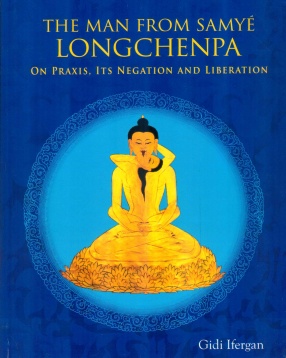The Man From Samye: Longchenpa on Praxis, Its Negation and Liberation
Price: $150.30 $167.00
Sata Pitaka Series Indo-Asian Literatures
Book: 644Author
Edition
1st. ed.
Publisher
ISBN
8177421328, 9788177421323
Length
xii+213p., Illustrations; 29cm.
Subjects
This study explores one of Tibet's greatest thinkers, Longchenpa (1308-1364), within the context of the `rhetoric of negation', an intense critique of philosophical views and spiritual practices that displays their inability to lead directly to liberation. Like that of his predecessors, Longchenpa's rhetoric of negation aimed to dismantle compulsive conceptualising mental processes, which creates an absence. However, Longchenpa went one step further and overcame ...

